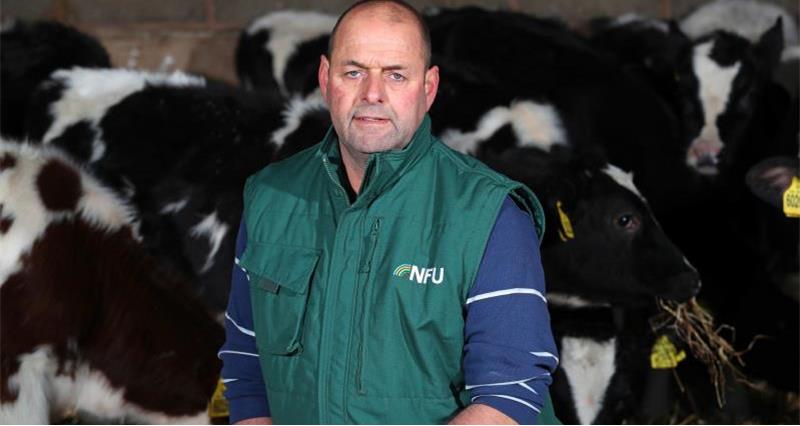“UK Dairy Day was a massively positive event, compared to last year, with farmer confidence up. People can see there’s a future in dairy although we still have to make sure we are demand-led and that we don’t go from bust to boom to bust again. I’m also pleased MPs have supported our Back British Farming Day and seen it as an opportunity to back our industry - we have to look at Brexit as a real opportunity for the dairy sector.
“Dairy farmers are under no illusion that there will be a change in future support for the agricultural sector once we leave Europe but the NFU fully believes that this gives us an opportunity to develop a new domestic agricultural policy that delivers for productivity, the farmed environment and risk management. Following extreme milk price volatility over the past two years we need to ensure farmers are able to access new ways of managing risk from fixed term milk price contracts to forward and future contracts. Vital for this is that the Government regulates on mandatory price and volume reporting but also providing support for a fit for purpose advisory service that upskills the industry on new risk management measures.
“Dairy farmers and the wider dairy supply chain are extremely innovative and progressive, but need the correct regulatory environment in which to deliver improvements on farm and in processing. The NFU is calling for a fit for purpose regulatory environment that delivers for food safety, traceability and environmental protection but also encourages new thinking and allows for innovation in farming techniques and dairy processing.
“With the reduction in dairy farm numbers we’ve seen over the past 20 years a move to larger, more specialised dairy farms with a higher requirement for paid labour – from herdsmen to farm managers. While historically this requirement would have been filled with UK workers supplemented with a small proportion from New Zealand, Australia and South Africa under the Tier 5 immigration scheme, more recently up to a third of our paid labour requirement on dairy farms is filled by Eastern Europeans. This has changed since the Brexit vote with vacancies on many dairy farms remaining unfilled for weeks and many dairy farms reducing production or ceasing production based on the inability to recruit staff. When the UK leaves Europe our dairy farmers will still need an ability to recruit dairy farming staff from outside the UK to satisfy both domestic and export demand for dairy.
“It’s no secret that we have a major dairy deficit, importing far more value of dairy products than we export. To fill this void, as well as increase our export potential we need to relook at our processing focus here in the UK and focus on third countries that value or high quality assured dairy products. Many of our dairy companies are pan-European and have to date enjoyed free and frictionless trade between the UK and EU - indeed 97% of our dairy trade is with the EU – and so we need to focus on achieving the best trade deal possible with the EU going forward.
“As the Brexit negotiations continue, we are calling on the Government to deliver policies that will ensure that Britain retains its ability to be more self-sufficient, support home-grown food and ensure that we have profitable, productive and progressive dairy businesses for the future.”
